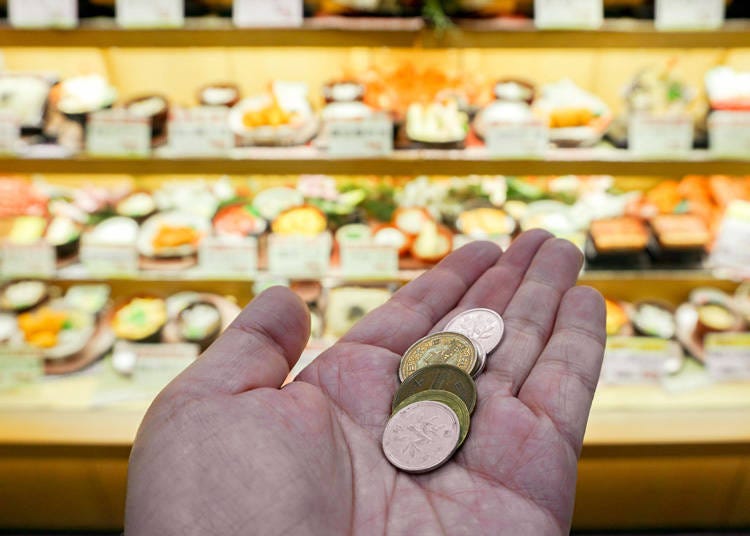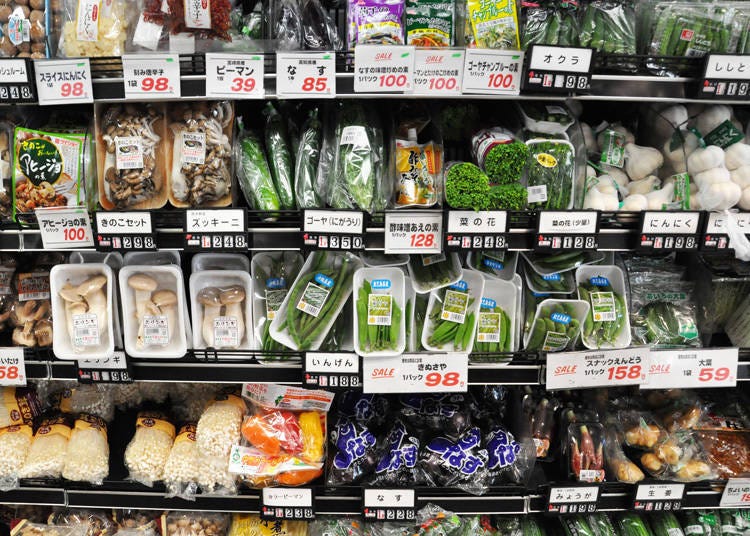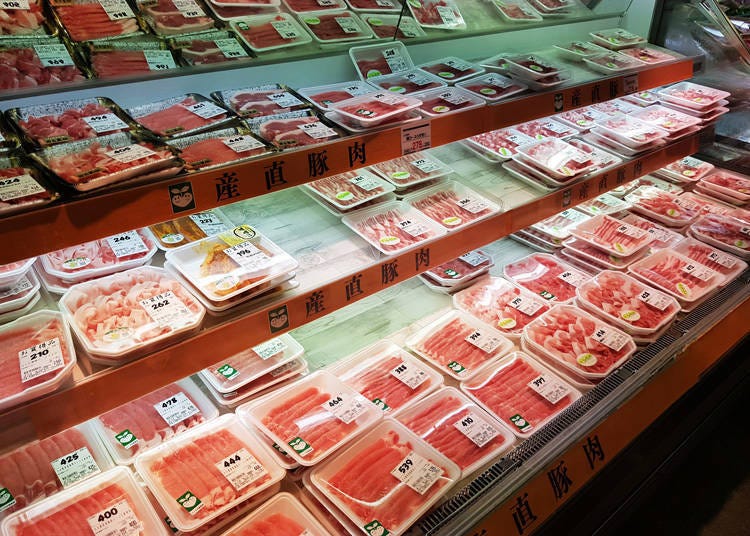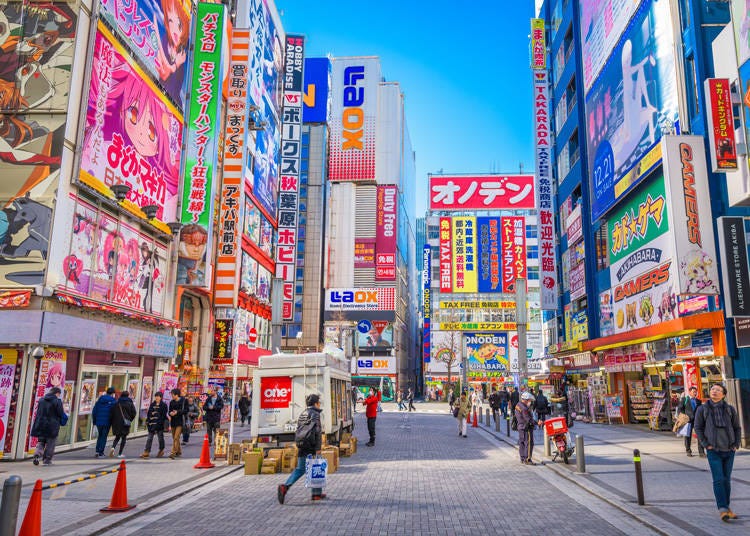
High prices in Japan are normal for people living there. How do travelers from overseas feel about the price of Japan? This time we interviewed an American living in Japan about the costs of living in Japan.
I will talk about what it’s like to pay to live in Japan as opposed to what it's like to be a tourist in Japan. (Each comment is the personal opinion of the respondent.)
Living in Japan costs about three times as much as living in the United States!

Even Japanese people understand that prices in Japan are higher than in many countries. Then, what does the cost of Japan look like from the perspective of Americans, who also have the impression that prices are higher than in other countries?
First of all, I asked about the honest impressions about living prices in Japan.
"Everything in Japan is expensive. I used to live in the United States, where for the cost of what I could live on for two weeks is only five days in Japan. The rough difference is about three times. It seems the more money I have, the faster it disappears." (American man)
It seems that the general impression is that living in Japan costs a lot of money.
From the description that spending two weeks in the US is only five days in Japan, you can tell that daily living in Japan is expensive.
Of course, it depends on the city, but in general, the rent in urban areas seems to be higher in the United States than in Japan. Considering that, Japan appears to have high prices on things other than rent. So, what about Japan is more expensive than in the United States?
Vegetables and fruits are smaller and more expensive in Japan

What do you find expensive when you compare the United States and Japan?
First, I asked about the daily cost of food.
"Some items, like dairy, only seem to come in small packages and are kind of pricey. The vegetables and fruits in Japan are small and expensive." (American man)
In the United States, milk is sold in gallon-sized containers, whereas in Japan it is sold in one-liter containers. One gallon is about four liters and is the typical size sold in the US.
In the United States, many types of milk are available, including low-fat, non-fat, and almond milk. In Japan, regular milk is primarily sold, and Americans feel that it is overall low in quality and is expensive.

“I think that grocery shopping in Japan is pricier. In particular, meat is expensive. In the US, thicker and larger meats are sold cheaply. But I lived in the countryside. In some supermarkets, the price can be about double.” (American man)
As for foods such as meat, vegetables, and fruits, it seems that more items in the United States can be purchased at the same price than in Japan, and there are many types of products. There are also differences in what is sold. Americans tend to prefer redder meat, whereas Japanese people prefer marinated meat. Either way, the meat in America is cheaper, and you can purchase more.
The United States tends to have people with diverse backgrounds, both racially and religiously. This forms a diverse food culture, so there are many choices for food products such as milk, meat, and vegetables.
Taxi fare and movie fees are double what they are in the US

Other everyday things are more expensive in Japan than in the United States.
"Japanese taxis are expensive. I think it costs about twice as much as in the US. Movies are also expensive. Similar to US cinemas, outside food is prohibited, but the ticket price is about double." (American man)
For Americans who own cars, gasoline prices are about half the cost than in Japan. Correspondingly, the taxi fare in the US is about half that of Japan.
The average Japanese movie ticket is about 1800 yen (~$18), whereas the American average is about $11. The cost of a movie in the US is cheap. Costs go up if you wish to purchase food and drink.
The 100-yen shop is cheap and has an impressive lineup of goodies!

From an American perspective, is anything cheap in Japan? Here are the results from this question.
"Family restaurants, beef bowl shops, and other shops that you can easily enter are cheaper in Japan. I think the 10- yen shop is cheaper. If you have any needs, just go to the 100-yen shop. I was impressed by the variety of items from daily necessities to foods, and the sale of even more convenient goods." (American man)
While the prices of milk, vegetables, and fruits sold at supermarkets are high, it seems that prices are low when eating out at family restaurants and beef bowl restaurants.
In America, going out to eat at a specific time has more of a draw than in Japan. Also, going out to eat at a restaurant costs more in the US than in Japan. In Japan, tipping is not done, so the cost is a bit cheaper.
Many shops in Japan are convenient and have yummy options. It is also helpful for Americans to know that there 100-yen shops for daily necessities. These are actually common destinations for Japanese and Americans alike when they need something quickly. In fact, 100-yen stores are expanding not only in Japan but also overseas, and are gaining popularity in many countries.
Many electric appliances are relatively high quality and cheap

Besides going out to eat and going to 100-yen shops, there are other great deals for Americans unique to Japan.
"Many electric appliances are relatively high quality and cheap. It's also better to buy anime goods that originated in Japan in Japan." (American man)
When you come to Japan, electrical appliances and anime goods seem to be the must-have items.
Japanese electric appliances are well known around the world for their high quality. Still, if you try to buy Japanese electrical appliances overseas, they tend to be expensive due to tariffs. Even with the same product, the price in Japan will still be much lower.
Also, some anime goods are only available in Japan, making them extremely popular with international tourists. There are many imitations and low-quality products overseas, so even if the original goods made in Japan are a little expensive, it seems to be worth it.
Know where you are saving money so you can enjoy your stay in Japan in a smart way
The impression is that prices are high in Japan and lower in the US. However, while Japan is generally considered more expensive, there are exceptions to this.
By knowing the difference in prices from other countries for certain goods, you will be able to get good deals unique to Japan. While shopping in Japan, you can shop smartly and enjoy the perks of a little research.
Written by Tsukahara Kazuhisa
*Prices and options mentioned are subject to change.
*Unless stated otherwise, all prices include tax.
Popular Tours & Activitiess
Recommended places for you
-

Kanzenkoshitsuyakinikutabehodai Gyugyu Paradise Sannomiya
Yakiniku
Kobe, Sannomiya, Kitano
-

Jukuseiniku-to Namamottsuarera Nikubaru Italian Nikutaria Sannomiya
Izakaya
Kobe, Sannomiya, Kitano
-
Appealing

Rukku and Uohei
Izakaya
Sapporo / Chitose
-
Goods

Yoshida Gennojo-Roho Kyoto Buddhist Altars
Gift Shops
Nijo Castle, Kyoto Imperial Palace
-

Kambei Sannomiyahonten
Yakiniku
Kobe, Sannomiya, Kitano
-

ISHIDAYA Hanare
Yakiniku
Kobe, Sannomiya, Kitano
-
Ad

Japan’s Land of Yokai Monsters and Spooky Stories! A Deep Journey to Mysterious San’in (Tottori & Shimane) for Seasoned Travelers
-

A New Tokyo Landmark Is Coming in 2026, and It's Built for Modern Travelers
by: Guest Contributor
-
Ad

What Makes Japanese Yakiniku So Darn Good? Guide to Cuts, Heat, and Wagyu Know-How
-

PokéPark KANTO Is Finally Open! Tokyo's New Pokémon World Starts Before You Even Arrive (2026)
by: Guest Contributor
-

Farewell, Heavy Suitcases! Keisei Ueno’s New Service Makes Your Last Day in Tokyo Totally Hands-Free
by: Guest Contributor
-
Ad

The Latest Guide to "Tourism Mobility": Traveling Japan More Freely. What exactly are Japan’s version of ride-sharing and transit deserts?
-

“With Strangers...?!" Why Foreigners Are Shocked by Japan’s Onsen Culture
-

Koiwai Farm Guide: Explore, Dine, and Play at Iwate's Top Agritourism Spot
-

'What's in Shibuya?' 5 Ways the Shibuya Area Is Way Different From What Tourists Expected
-

Iwate Bucket List: 20 Best Things to Do in Iwate Prefecture For Tourists (Attractions, Food, Activities)
-

Complete Guide to Niigata Airport (KIJ): Dining, Souvenirs, Massages, and More!
-

So why do you get naked? 6 Japanese customs that shocked foreigners
- #best sushi japan
- #what to do in odaiba
- #what to bring to japan
- #new years in tokyo
- #best ramen japan
- #what to buy in ameyoko
- #japanese nail trends
- #things to do japan
- #onsen tattoo friendly tokyo
- #daiso
- #best coffee japan
- #best japanese soft drinks
- #best yakiniku japan
- #japanese fashion culture
- #japanese convenience store snacks












